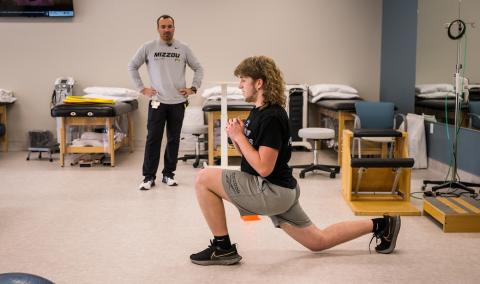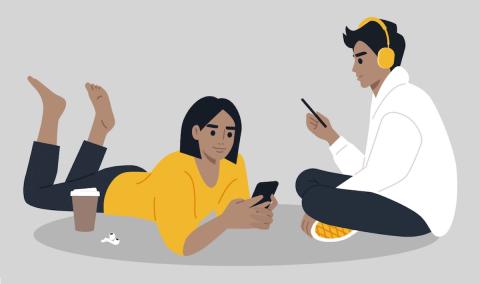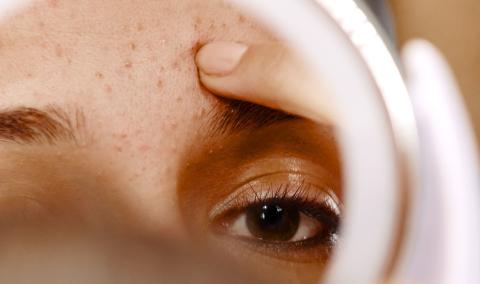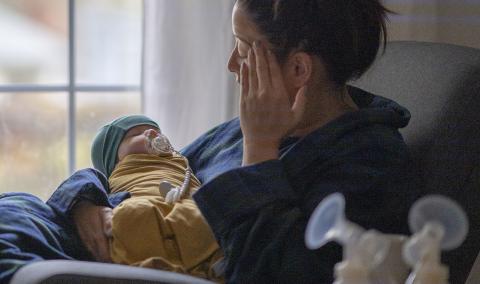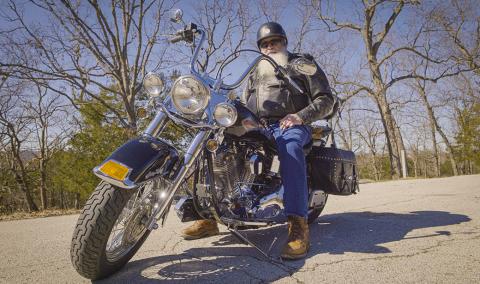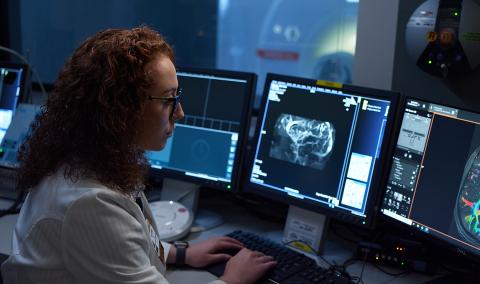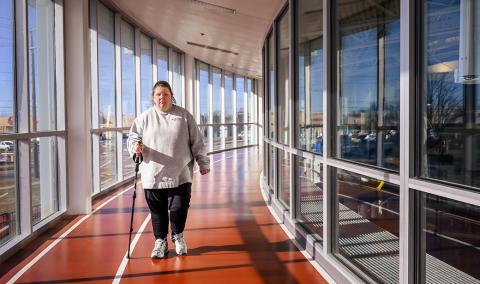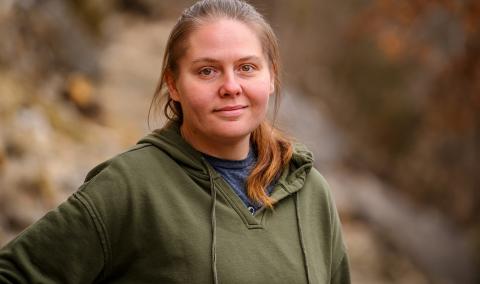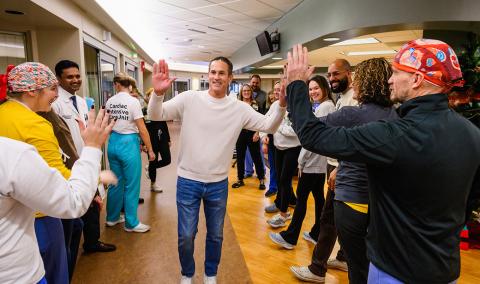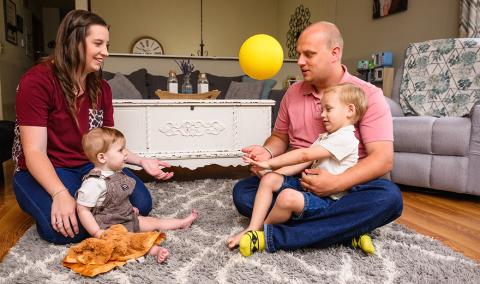If you have a spinal cord injury, we offer advanced, highly specialized rehabilitation to help you maximize your independence, health and quality of life. The spinal cord rehabilitation team at University of Missouri Health Care understands the unique challenges you face.
Our team of experienced doctors, nurses and therapists offer:
- Education about caring for your skin, bladder and bowel function
- Equipment prescriptions, such as a wheelchair, to help you with your daily tasks
- Guidance with forming a life care plan
- Help with managing the medications for your symptoms
- Long-term follow-up care in our Spinal Cord Injury Clinic to help lower the chances of having more health problems because of the injury
- Physical therapy to help you reach your highest level of independence
- Specialized treatments with our wound care team to enhance wound healing
The spinal cord rehabilitation team
Our spinal cord rehabilitation includes:
- Rehabilitation physicians
- Rehabilitation nurses
- Occupational therapists
- Physical therapists
- Speech therapists
Spinal cord conditions we treat
We offer treatments and therapies for:
- Paraplegia (paralysis of the lower body)
- Tetraplegia (total or partial paralysis of arms and legs)
- Other spinal cord injury syndromes (a group of symptoms)
Treatments for spinal cord injuries
Our team offers a combination of state-of-the-art treatments that includes:
- Intensive full-team inpatient rehabilitation at Rusk Rehabilitation Hospital, an affiliate of Encompass Health and MU Health Care, including:
- Partial bodyweight-suspended treadmill training for ambulation
- Electrical stimulation for muscle training
- Special treatments in our therapeutic pool
- Medication therapies that improve healing, functional outcome and neurologic recovery, including:
- Anabolic agents like hormone replacement therapy, other anabolic steroids or growth hormone to improve wound healing, functional outcome and neurologic recovery
- A medication called 4 amino pyrimidine, or AMPYRA, that has been shown to improve neurologic function after spinal cord injury
- Preventative care of complications of spinal cord injury
- Screening and early treatment of complications of spinal cord injury
A combination of these treatments may give you an increased chance for neurologic recovery and functional improvement.
Long-term follow-up care
We typically see patients in the spinal cord injury clinic every three to 12 months to screen for complications and review new treatment options to improve health, wellness and functional independence.







